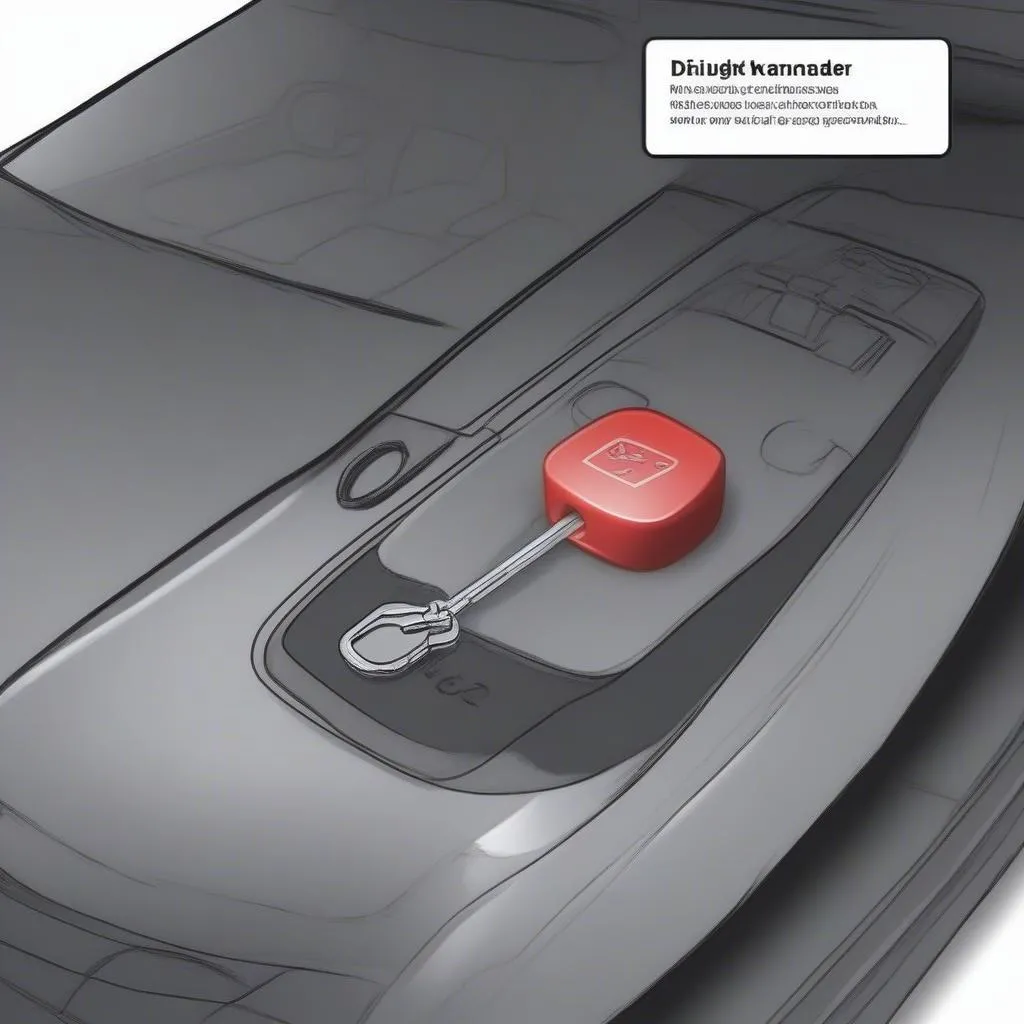The brake system warning light on your dashboard is a crucial safety feature. When it illuminates, it signals a potential issue with your vehicle’s braking system that requires immediate attention. Ignoring this warning light can lead to dangerous driving conditions and costly repairs. This comprehensive guide will delve into the common reasons why your brake system warning light might be on and what each scenario could mean.
Common Causes of a Brake System Warning Light
There are several reasons why your brake system warning light might turn on. Some of the most common causes include:
-
Low Brake Fluid: One of the most frequent culprits is low brake fluid level. Your braking system operates on hydraulic pressure, and when the fluid level drops, usually due to a leak or worn brake pads, it can trigger the warning light.
-
Engaged Parking Brake: It might seem obvious, but a simple oversight like leaving your parking brake partially engaged can cause the warning light to illuminate. Always ensure your parking brake is fully released before driving.
-
Worn Brake Pads: Brake pads are designed to wear down over time. When they reach a certain level of wear, a sensor within the brake pad will make contact with the brake rotor, triggering the warning light to alert you that it’s time for a replacement.
-
Faulty Brake Light Switch: The brake light switch is responsible for activating your brake lights when you press the brake pedal. A malfunctioning switch can disrupt this process and often triggers the brake system warning light simultaneously.
-
ABS Issue: If your vehicle has an Anti-lock Braking System (ABS), a problem with the ABS module, wheel speed sensors, or related components can also turn on the brake system warning light.
Understanding Different Warning Light Behaviors
The way your brake system warning light behaves can provide valuable clues about the underlying issue:
-
Solid Light: A constantly illuminated brake system warning light typically indicates a problem with the standard braking system, such as low brake fluid or worn brake pads.
-
Flashing Light: A flashing brake system warning light often points to a more serious issue, such as a complete brake fluid leak or a malfunction within the ABS.
“A flashing brake warning light should never be ignored,” says automotive engineer and diagnostics expert, Sarah Chen. “It often indicates a critical problem that could lead to sudden braking failure.”
What to Do When Your Brake System Warning Light Comes On
If your brake system warning light illuminates, follow these steps:
- Pull Over Safely: Find a safe location to pull over as soon as possible. Avoid sudden braking.
- Check Your Parking Brake: Ensure your parking brake is fully disengaged. If it was engaged, release it and see if the warning light turns off.
- Inspect Brake Fluid Level: If it’s safe to do so, carefully check the brake fluid level in the reservoir. If the level is low, adding brake fluid might temporarily solve the problem, but it’s crucial to have the system inspected for leaks.
- Avoid Driving: If the warning light persists, especially if it’s flashing, do not attempt to drive the vehicle. Contact a qualified mechanic or tow your vehicle to a trusted repair shop for diagnosis and repair.
04 nissan titan brake and slip warning light
Importance of Professional Diagnosis
While some brake system warning light issues might seem straightforward, it’s essential to seek professional diagnosis and repair. A qualified mechanic has the expertise, tools, and experience to:
- Accurately Diagnose the Problem: They can pinpoint the exact cause of the warning light, whether it’s a minor issue or a more complex electrical or mechanical fault.
- Prevent Further Damage: Addressing brake issues promptly can prevent more extensive and costly damage to the braking system.
- Ensure Your Safety: A properly functioning brake system is crucial for your safety and the safety of others on the road.
“Attempting to diagnose or repair brake system issues yourself can be dangerous,” warns Mark Williams, a certified master technician with over 20 years of experience. “Leave it to the professionals to ensure the job is done right.”
bmw x3 4×4 and brake warning lights all on
Conclusion
Your vehicle’s brake system warning light serves as a vital safety communication channel. Understanding what triggers this warning light and how to respond appropriately can be the difference between a minor inconvenience and a potentially dangerous situation. Remember, when it comes to brakes, erring on the side of caution and seeking professional help is always the safest approach.

